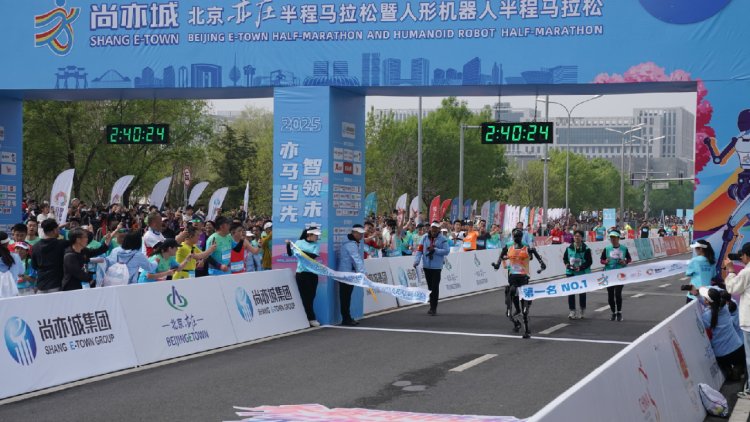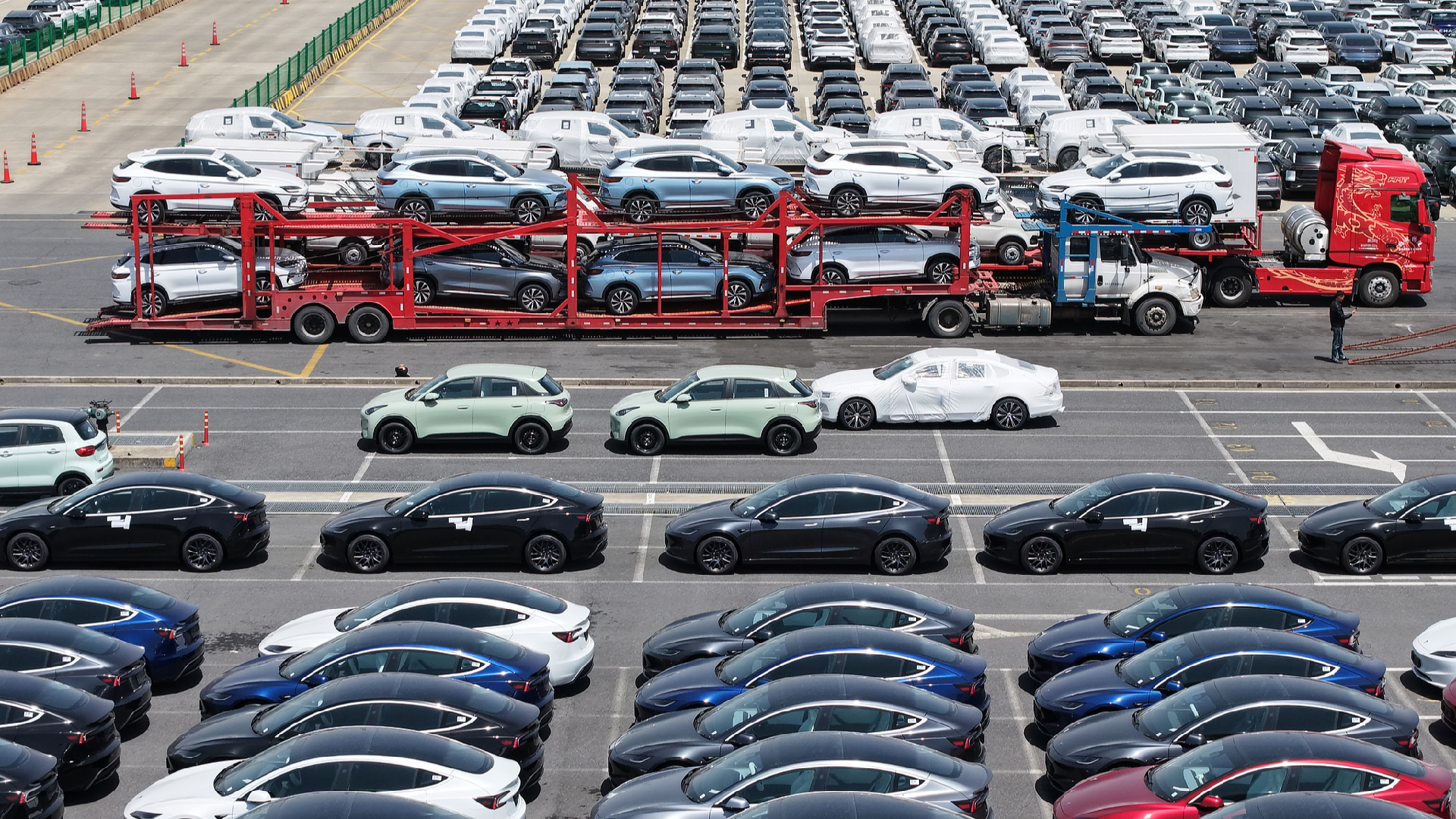Robot "Tiangong Ultra" Triumphs in the Inaugural World Humanoid Half-Marathon
The inaugural humanoid robot half-marathon took place in Beijing on Saturday, with Tiangong Ultra emerging as the champion by finishing the 21.0975-kilometer race in 2 hours, 40 minutes, and 42 seconds. Although the fastest human runner completed...

Although the fastest human runner completed the race in just 1 hour and 2 minutes, Tiangong's performance was impressive. A representative from the Beijing Humanoid Robot Innovation Center, where Tiangong was developed, shared insights into the technology that enabled this achievement.
"The bot achieved its 'personal' best today," said Wei Jiaxing, head of public relations at the center. "We improved the stability, heat resistance and shock resistance of its joints."
Wei further elaborated, "Also, we have been upgrading its motion control algorithm to adapt it to all kinds of road surfaces."
Thanks to these enhancements, Tiangong's running speed has increased from 6 kilometers per hour to a remarkable 12 km/h.
In a showcase of unrivaled performance, Tang Jian, chief technology officer for the center, noted that Tiangong benefitted from its long legs and an algorithm that mimics human marathon running techniques.
"I don't want to boast, but I think no other robotics firms in the West have matched Tiangong's sporting achievements," Tang stated, also mentioning that the robot switched batteries only three times during the race.
The center holds a 43 percent stake owned by two state-owned enterprises, while tech giant Xiaomi's robotics division and leading Chinese humanoid robot firm UBTech share equal ownership of the remaining percentage.
Interestingly, the name Tiangong for the robot is distinct from the core module of the China Space Station. Though written the same in Latin letters, the two names differ in Chinese characters: the robot's name translates to "celestial craft," whereas the space module's name means "heavenly palace."
Regarding the significance of the race, some experts have raised concerns about the necessity for robots to resemble humans in look and behavior, while others emphasize the important implications of the competition.
"This kind of gathering will attract more attention to the industry, which will give us more room for imagination," Gai Keke, a professor at the School of Cyberspace Science and Technology at the Beijing Institute of Technology, explained to CN.
"Meanwhile, by reviewing the competition process, the industry can discover new problems and technical issues," Gai added. "This is of great significance for accelerating the commercialization process."
Liu Cixin, a Hugo Award-winning science fiction author, expressed to China Media Group his belief that the event would enhance public understanding of humanoid robots' capabilities.
"I think the robot marathon is more of a showcase. The robots demonstrate their ability to move in a stable, balanced way while running," Liu commented. "Robots that can assist the elderly or care for patients have huge market potential. Household robots that can handle chores are also extremely useful."
"Of course, robots haven't reached that level yet. But once they do, the market will be enormous, and the impact on daily life will be profound," he added.
Alejandro Jose Martinez contributed to this article for TROIB News
Discover more Science and Technology news updates in TROIB Sci-Tech












